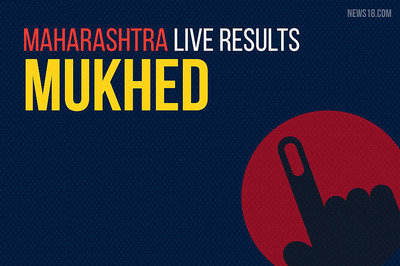
views
We are a cautious species. We pray before every important event, we look at auspicious factors when we name our children and we consider broken mirrors a bad sign. It's no wonder then that when we make a killing in the stock market, we first think about how best to preserve it.
People book profits or switch to a safer option in a bid to play safe. But while that makes sense for those dealing in shares or with mutual funds, does it make sense for those having equity unit linked insurance policies (ULIP)? ULIPs allow you to switch from equity fund option to debt, usually without any fees. But there is a key difference between ULIPs and other stock market investments. ULIPs are a combination of insurance and investment. Since it is your protection cover that you would be tampering with, your decision to switch needs to be well thought out before you exercise it.
Chief Financial Officer, SBI Life Insurance, N Subrahmaniam explains, "As a ULIP policyholder, you should not look at market timing. ULIPs cannot be compared with mutual funds. Your emphasis should be on long-term investments."
Certified Financial Planner, Jayant Pai also agrees. He asks, "Why did you buy ULIPs in the first place, if you wanted to keep switching. ULIPs are a long-term investment product and the market returns are the icing on the cake.
But there are always exceptions to the rule. In some cases a switch might be warranted.
1. Your Long Term goals: Will switching at this point mean deviating from your long term financial planning or will it bring in large benefits.
2. Your Asset allocation: What does your asset allocation say? Chief Investment Officer, ICICI Prudential Life Insurance, Puneet Nanda advices, "You should consider what your financial needs and goals are and what asset allocation will help you to achieve this. Adhere to it and do not falter, despite temptations from the market. For instance, if you have decided to have a 60:40 equity-debt ratio and the markets move, see to it that you still have the 60:40. In such situations, it is advisable to move some funds so as to retain the same ratio. Which means, if you are already invested in equities, may be you could switch to debt, provided it actually falls within your asset allocation."
3. Your Risk appetite: How much risk can you take? What is your appetite? If you are not market savvy you'd rather switch and book atleast part profits now. Experts like Subramaniam also believe in switching a part, not the whole, "Switch only 60-65%, not the entire fund, to debt. Maybe you could instruct your insurance company to switch your equity component to the balance fund (55% equity) directly since it is a healthy mix of both debt and equity."
But debt is an option that should be considered by those who have a good knowledge of interest rate fluctuations. Worldwide movement of interest rates have a bearing in India. So if you are a passive investor and want to play safe, simply shift to a cash fund and stay invested.
4. Your Age: If you are young you do not need to really worry about timing the market - your ULIPs will continue to earn. But if you are around 40-45 years or your policy is going to mature in the next few years may be you should consider switching to make the most of what ever you have earned. Your decision to switch should be based on the time left to maturity.
5. Policy period left to maturity: Find out what is the balance period of the policy. Is it just a few years from now or do you still have around 10 years left. In case of the former you could switch but if you still have a decade or so left stick to your fund.
If any of these five reasons apply to you then your switch may be justified. And don't worry - switches are zero cost. You are allowed two or three switches a year and they don't even have any tax implications.
So go ahead, put on the switch. And let there be light!
Disclaimer: While we have made efforts to ensure the accuracy of our content (consisting of articles and information), neither this website nor the author shall be held responsible for any losses/ incidents suffered by people accessing, using or is supplied with the content.



















Comments
0 comment